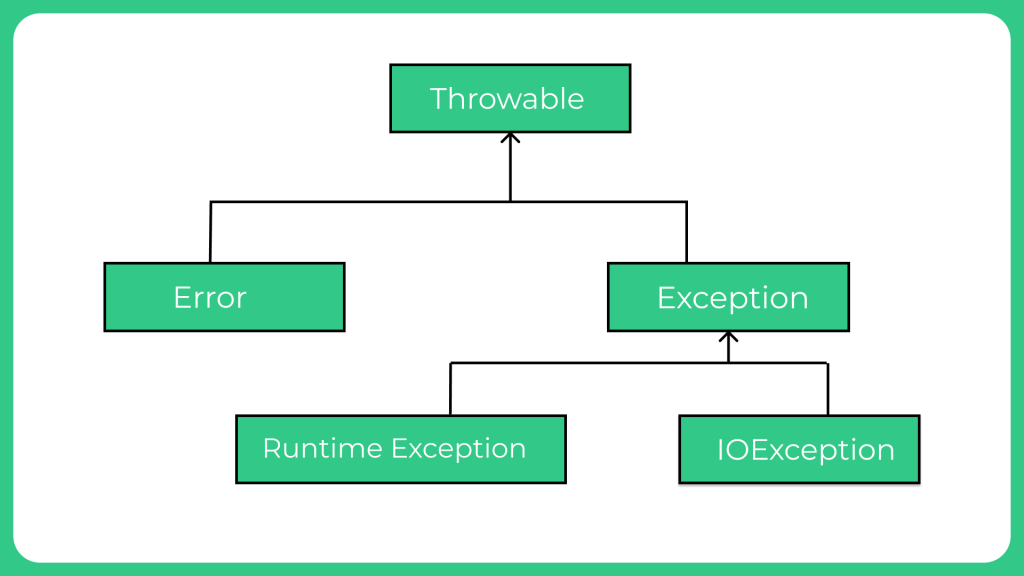Java Exceptions

Java Exceptions
- In Java, an exception is an event that occurs during the execution of a program that disrupts the normal flow of the program’s instructions.
- When an exception occurs, the normal flow of the program is interrupted and the program’s control is transferred to an exception handler.
- Java has two types of exceptions: checked exceptions and unchecked exceptions.
- To understand more about Java Exceptions, Read the Complete Article.
Java Exceptions may occur for following Reasons: Some of them are:
- Programming errors: These types of exceptions occur due to logical or syntax errors in the program code. For example, trying to access an array element that is out of bounds or attempting to divide by zero.
- Environmental issues: These types of exceptions occur when the program encounters issues related to the environment it is running in. For example, a network connection failure, running out of memory, or file I/O errors.
- User input errors: These types of exceptions occur when the program receives invalid or unexpected input from the user. For example, trying to parse a string that cannot be converted to a number or trying to access a file that does not exist.
- External dependencies: These types of exceptions occur when the program depends on external resources that are not available or accessible. For example, attempting to access a database that is down or a web service that is not responding.
- Security issues: These types of exceptions occur when the program encounters security-related issues such as unauthorized access or authentication failures.
Java Exception hierarchy

Java Exception Types
Checked Exceptions: These are exceptions that the Java compiler requires the programmer to handle or declare.
- These exceptions are typically caused by external factors that are outside of the program’s control, such as file I/O errors or network connectivity issues. Examples of checked exceptions include IOException, SQLException, and ClassNotFoundException
- These exceptions are typically caused by programming errors or logical errors in the code. Examples of unchecked exceptions include NullPointerException, ArrayIndexOutOfBoundsException, and ArithmeticException.
Errors – In general, an error is a mistake or fault that is made when something is being done. The term “error” is often used in different contexts, such as in computing, mathematics, science, and everyday life, to describe a deviation from what is expected, correct, or desired.
In computing, an error is an unexpected or incorrect behavior that occurs when a program or system is executed. This can be caused by various factors, such as incorrect input data, a bug in the code, or a failure in hardware or software components.
Prime Course Trailer
Related Banners
Get PrepInsta Prime & get Access to all 200+ courses offered by PrepInsta in One Subscription
Get over 200+ course One Subscription
Courses like AI/ML, Cloud Computing, Ethical Hacking, C, C++, Java, Python, DSA (All Languages), Competitive Coding (All Languages), TCS, Infosys, Wipro, Amazon, DBMS, SQL and others






Login/Signup to comment